“Whosoever saves a single life, saves an entire universe”
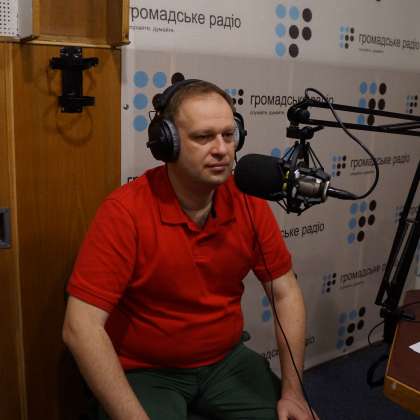
Andriy Kobalia: I think we should begin by saying that nearly 2,500 Ukrainians have been recognized as Righteous Among the Nations. In Ukraine, the first mass killings of the Jewish population by Nazi troops began on 22 June 1941, when the Germans, who had already captured the small border town of Sokal, in the Lviv region, shot at dawn in the city square the first eleven Jews whom they encountered by chance. In Galicia between October 1943 and June 1944 alone, more than a hundred people were killed for helping Jews. Another important fact is that the mayor of Kremenchuk was killed for his attempt to hide Jews from the Nazis.
Who grants the status of Righteous Among the Nations, and how is this done?
Andriy Rukkas: The title of Righteous Among the Nations is granted by the Israeli state body known as Yad Vashem. It examines applications for the granting of this status. This is quite a complex and painstaking process. A candidate for this honorific must satisfy an entire array of criteria. The first criterion: S/he may not be a Jew. The second criterion: S/he must have saved a Jew, fully aware that s/he was a Jew. The third criterion: S/he cannot have received any material or other type of compensation, for example, a rescue connected with adoption or conversion to another faith. In addition to material things, the rescue must be connected with the awareness of risk to one’s own life and that of family members.
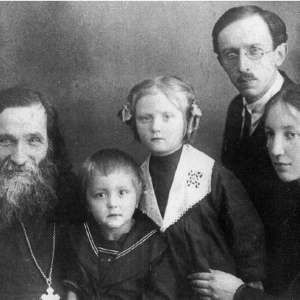 All the circumstances surrounding the rescue must be documented or confirmed by the person who was saved or by the descendants of the individual who was saved. Every case is examined scrupulously by a special commission that studies all the relevant materials. As of today, nearly 600 applications have been submitted, 20 percent of which are rejected for one reason or another. More than 26,000 people hold the title of Righteous Among the Nations in various countries, from the US to Japan and Vietnam. Of course, most are from the European countries. A person who is granted this status receives a medal inscribed with these words: “Whosoever saves a single life, saves an entire universe.” In addition, if this individual is still living, s/he receives honorary citizenship of the State of Israel; if the individual has passed away at the time this title is granted, s/he is granted commemorative citizenship. The person’s descendants can request that the commemorative citizenship be granted to them. If a Righteous Among the Nations lives on the territory of the State of Israel, s/he enjoys various benefits; financial support equal to an average monthly wage is issued to him/her. There are some tax breaks and many other benefits.
All the circumstances surrounding the rescue must be documented or confirmed by the person who was saved or by the descendants of the individual who was saved. Every case is examined scrupulously by a special commission that studies all the relevant materials. As of today, nearly 600 applications have been submitted, 20 percent of which are rejected for one reason or another. More than 26,000 people hold the title of Righteous Among the Nations in various countries, from the US to Japan and Vietnam. Of course, most are from the European countries. A person who is granted this status receives a medal inscribed with these words: “Whosoever saves a single life, saves an entire universe.” In addition, if this individual is still living, s/he receives honorary citizenship of the State of Israel; if the individual has passed away at the time this title is granted, s/he is granted commemorative citizenship. The person’s descendants can request that the commemorative citizenship be granted to them. If a Righteous Among the Nations lives on the territory of the State of Israel, s/he enjoys various benefits; financial support equal to an average monthly wage is issued to him/her. There are some tax breaks and many other benefits.
At the present time, several dozen Righteous Among the Nations live on the territory of the State of Israel and have the gratitude of the State of Israel, as individuals who performed a heroic feat, risking their own lives, unselfishly saving a member of the Jewish nation. Where selflessness is concerned, clothing and money given for food are not considered a material benefit.
(For a conversation with Yad Vashem’s Dr. Aaron Schneier about the Hall of Names and Andrei Sheptytsky, click here)
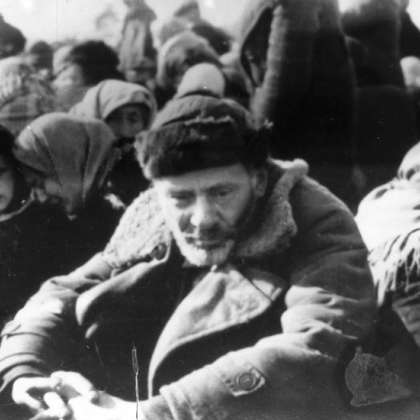
Andriy Kobalia: Who were these people? Did they share anything in common, or were they people with different social statuses, religions, and other characteristics? Why did Ukrainians per se hide Jews and obtain the title of Righteous?
Andriy Rukkas: First of all, I would like to say that the statistics on the more than 26,000 [Righteous] throughout the world and the more than 2,500 Ukrainians who have been recognized as Righteous Among the Nations are not representative. Yad Vashem emphasizes that this does not mean that if the lists contain 6,500 Poles, they saved Jews more than Ukrainians or Belarusians, more than 600 of whom are in the list. These are simply cases that have been documented to date, corroborated by documents, and recognized as having taken place.
Who were these people? They were absolutely different in terms of their social, national, and religious affiliations, starting with Princess Elena of Romania and ending with the sixteen-year-old girl Sofiia Yarova, who lives in Kyiv today and who saved seven Jews in German-occupied Kyiv.
The authors of the recently published The Encyclopedia of the Righteous Among the Nations provides a summary of their motivations. Slightly under 50 percent were people who had dealings with Jews and were friends with them before the war and the Catastrophe; approximately 43 percent did this out of moral conviction, because of their upbringing; they could not do otherwise. And nearly 5 percent [saved Jews] because of political convictions, and 2 percent because of religious convictions. But moral qualities are intertwined closely with religious and political convictions. Thus, it is very difficult to explain why a given individual who realized the risk to his/her own life and the lives of family members saved a Jew, and to draw a clear line.
The grandmother of a friend of mine saved some Jewish children; I think that she has not been recognized as Righteous because these children grew up and left for Israel; that’s why this case was not documented. When she was asked subsequently, “Why did you do this?” she replied that she saw that these were not Ukrainian children, but what could she do? They had already come inside the house. Children are children, so she saved them. How does one explain her action? Moral values and upbringing. In other words, she could not have done otherwise.
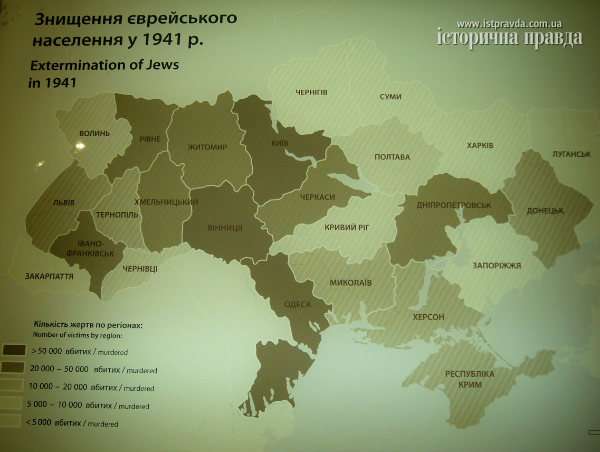
Andriy Kobalia: If you compare the Ukrainian experience with that of other countries, what are the commonalities and what is different? In the context of hiding Jews, is there something particular in the Ukrainian case, something that can be found only in the former Soviet states?
Аndriy Rukkas: I would say this: There is Western Europe and Eastern Europe. It was significantly more difficult and more dangerous to save a Jew in Eastern Europe than in Western Europe. Because a savior in Western Europe, where the occupying regime was milder than in the Eastern lands, risked imprisonment in a concentration camp. But a savior of a Jew in Eastern Europe was threatened with death; and not necessarily his/her personal death, but, for example, the death of relatives and destruction of property. The Germans viewed not only saving but also feeding a Jew—the rendering of help given a single time—as assistance. If you draw a comparison, then of course there was a significantly larger risk to life and more tragic consequences that could ensue in the event such an act was discovered. This was the case in Ukraine, Belarus, and Poland, where the Nazi occupying regime was significantly more brutal. In Western Europe there were cases where entire localities were involved in saving Jews. For example, there is a village in the Netherlands whose 117 inhabitants are recognized as Righteous Among the Nations, because the village community decided that it would save the Jews. Thus, several Jews who were escaping from the Nazi persecutions were hidden in each house. After the war all of them were recognized as Righteous. There is a similar situation in France. But no cases of Jews being saved by entire communities in Belarus, Poland, or the occupied districts of Russia have been documented. But this does not mean that Jews were rescued less in Ukraine, Poland, France, or Belgium. There is another feature, which is connected with statistics. Until the 1980s and 1990s it was considerably more difficult to engage in a search for Righteous and grant this title to people on the territory of the USSR than on the territory of Western Europe. That is why there are more French and Belgian [Righteous] than Belarusian ones. And, in keeping with their citizenship before the Second World War, the residents of Western Ukraine were inscribed under the category of “Poles.” If you look at the list of Ukrainian Righteous and the date when they were granted this title, it will be 1992 to the present.
Andriy Kobalia: It might be worthwhile to start discussing personalities. The Greek Catholic metropolitan Andrei Sheptytsky and the Orthodox priest Oleksii Hlaholiev are some of the people who hid Jews. Why has Sheptytsky not been recognized as Righteous, while Hlaholiev has obtained this title?
Andriy Rukkas: Father Oleksii Hlaholiev, who served at the Church of the Protective Veil of the Most Holy Mother of God in the Podil district [of Kyiv], was recognized as Righteous for saving Jews. He risked his own life and the lives of all his family members, who were also involved in this “operation.” Rev. Oleksii is a very interesting figure, who had an unbreakable character; he defied the government, unafraid of demonstrating his convictions openly.
For example, when the Church was being persecuted on the eve of the Second World War, he was practically the only priest in Kyiv who was not afraid to walk around Kyiv wearing a pectoral cross, demonstrating his religious and confessional affiliation. He was a priest of the catacomb Orthodox Church. That is why saving Jews in the conditions of the terrible Nazi occupation was not something bizarre. And it was absolutely natural. Therefore, he was recognized as Righteous Among the Nations.
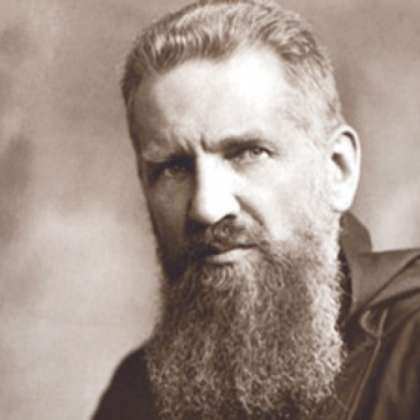
As for Andrei Sheptytsky, it is his high position as the head of the Greek Catholic Church, which proved to be an obstacle. Because his own brother, the monk-archimandrite Klymentii Sheptytsky, was recognized as Righteous for saving approximately 170–200 Jews. And he is recorded as a citizen of Poland. But if Andrei Sheptytsky is recognized, then of course he will be included in the Ukrainian list. So the two brothers may end up in various lists. Several times submissions have been made concerning recognition of Metropolitan Andrei as Righteous. However, they were declined. His high-ranking post and those statements that he had made in fact for saving Jews and Ukrainians [sic]. In particular, he is blamed for his position on the question of the formation of the Galicia Division. He is also accused of not having done significantly more in his position. But this does not mean that because of this Andrei Sheptytsky is a lesser figure and is not Righteous. Actually, he is Righteous, and there is a whole range of Jewish organizations, including Jewish organizations in Ukraine, which have recognized him as Righteous and granted him honorary awards posthumously. That is why I think the question of recognizing him as Righteous will be raised again and again. I hope that he is recognized as Righteous.
Andriy Kobalia: What were the stories of those who saved [Jews] and those who were saved? For example, what happened to Oleksii Hlaholiev and Andrei Sheptytsky? Did saving Jews affect their lives?
Andriy Rukkas: Andrei Sheptytsky died in late 1944, and Hlaholiev in the late 1970s in Kyiv. Some Righteous survived the Second World War and died in the 1970s and 1980s, and some are still alive. One famous Righteous Among the Nations, the Swedish diplomat Raul Wallenberg, was tortured to death by the Germans (most of the literature includes the theory that Wallenberg was detained by the Soviet intelligence service and later transported to the territory of the USSR, where he most likely died—Ed.). The same thing happened to Oskar Schindler (in fact, Schindler died of natural causes in 1974 at the age of 66—Ed.). And Nobel Prize winner Czesław Miłosz died in 2004.
Thus, the fate of these people was absolutely different. In the Ukrainian list are many people with a “simple title.” In some countries, Righteous Among the Nations are granted high state awards; for example, the National Order of the Legion of Honour in France. But they are not honored and awarded on the state level in the Russian Federation. This is [worthy of] neither an honor or award there.
Andriy Kobalia: You mentioned that many Ukrainian Righteous figure in Polish lists. Have historians attempted to single out the Ukrainians from these lists?
Andriy Rukkas: I do not know of any such attempts. There may have been some. But I don’t see any point to this because the main fact here is recognition of an individual, not his/her nationality. Such things do not detract from the greatness of these individuals. That’s why I don’t see any great need for this. Yad Vashem emphasizes that these are in no way statistics; they are not representative figures. These figures do not mean that Poles saved more [people] than Ukrainians, and some—even fewer.
For example, the Salvadoran consul issued several tens of thousands of passports with exit visas, and saved several tens of thousands of people, while the above-mentioned Sofiia Yarova saved seven people, and other people saved a few. The number is not important.
Andriy Kobalia: You said that various countries had their own particularities. Is it possible to say that the rescue of Jews is a good test of how a certain society is tolerant of other cultures? If you take cases from Ukraine, France, and the Scandinavian countries, is this an example of how much societies are ready to accept other religions and cultures?
Andriy Rukkas: Without a doubt, this is a kind of tolerance indicator. But I would like to emphasize that this is a tolerance indicator from 70 years ago, in the complex conditions of the Second World War and the harsh occupation. It is also necessary to make corrections to the circumstances in which one society or another lived during the war. The Danes protested en masse against the persecution of the Jews, and saved nearly the entire Jewish community by transporting it on boats to the territory of neighboring Sweden. Approximately 60 local Jews suffered in Denmark. And everyone protested, beginning with the king and ending with the last representative of the lower social strata. So, all this is a certain indicator as well.
But, on the other hand, some Polish data indicate that operations to save the Jews involved, according to various estimates, between 350,000 and a million people. It is worth bearing in mind that the occupation regimes in Poland and Denmark are two different things. So, it is also not quite appropriate to compare them. What is important here is the fact of recognizing the courage and good qualities of people in the complex conditions of the war. There is a very nice saying: “Whosoever saves a single life, saves an entire universe.”
This program was made possible by the Canadian non-profit organization Ukrainian Jewish Encounter.
Originally appeared in Ukrainian (Hromadske Radio podcast) here.



















